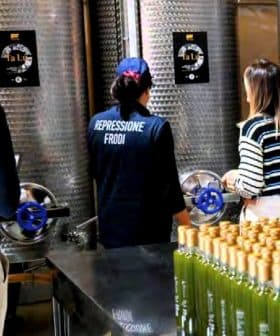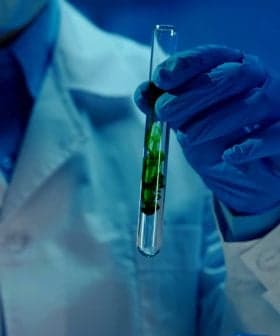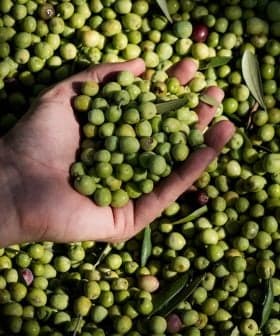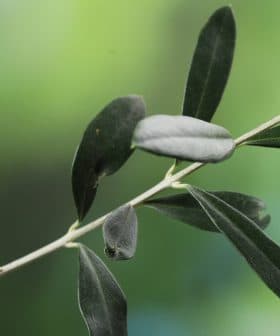New Chemical Approach to Compromised Extra Virgin Olive Oil
UC Davis researchers have developed a more rapid and cost-effective process to determine the reliability of a product bottled with an extra virgin olive oil label.
 Photo: Alana Joldersma
Photo: Alana JoldersmaThe UC Davis Olive Center has published research on a new, quicker, and more cost-effective method to detect adulterated extra virgin olive oil, using ultra-high-performance liquid chromatography with charged aerosol detection. This method, which can differentiate olive oil from common adulterants, involves analyzing triacylglycerol profiles and using Principal Component Analysis to create a more efficient way to detect olive oil authenticity for government officials and bulk buyers.
Research findings of a new chemical method to detect deliberately compromised or inadvertently adulterated extra virgin olive oil have been published by the UC Davis Olive Center.
Financial incentives to adulterate extra virgin olive oil have long been known, but methods to detect the difference between the real thing and a deliberately compromised product, containing other less expensive oils, are time-consuming and costly.
This is a time-efficient and cost-effective method for detecting olive oil authenticity that can be utilized by the government officials and bulk buyers at various food-controlling points
Now, the UC Davis researchers have developed a more rapid and cost-effective process to determine the reliability of a product bottled with an extra virgin olive oil label.
Selina Wang, research director of the UC Davis Olive Center, described the new process as involving a faster, better and cheaper method than the multiple standard methods in common use for analyzing olive oil purity.
See Also:Olive Oil Research News“The method analyzes triacylglycerol (TAG) profiles in olive oil for potential adulterants using ultra-high-performance liquid chromatography (UHPLC) with charged aerosol detection (CAD),” Wang said.
The UC Davis researchers used a UPHLC with a charged aerosol detector loaned to the Olive Center by the manufacturer, Thermo Fisher Scientific.
“The method is more environmental-friendly as it requires a simple dilution of the sample rather than the solvents and chemicals needed for existing purity methods,” Wang said.
She also said that the method could be automated and does not require a chemist, thus allowing those with a UHPLC to run the method in-house.
The sophisticated screening involves, “using as little as a teaspoon of oil,” Wang said. The method is sensitive and can detect 10 percent of an adulterant or greater.
“A key to the efficiency and effectiveness of this new approach and use of technology is expediting extra virgin olive oil adulteration detection by combining TAG analysis with Principal Component Analysis (PCA),” Wang said, adding that TAGS are the principal component which makes up 90 percent of the compounds in edible oils and each type of oil has its own characteristic TAG profile.
The UC Davis researchers determined TAG profiles for olive oil as well as for five common extra virgin olive oil adulterants, including high-oleic sunflower, high-oleic safflower, canola, soybean, and grapeseed oils.
These oils were chosen based on the likelihood of their usage in blending with extra virgin olive oil. The researchers began screening by using a UHPLC-CAD to quickly separate and analyze the TAGs in a variety of pure oil samples and oil blends.
Once TAGs were separated, similarities and differences between different oils based on their TAG profiles were analyzed by PCA.
PCA is an established statistical technique used to visualize the differences in samples. The researchers were able to differentiate the olive oil from the five extra virgin olive oil adulterants in their study, by using the distinct TAG profile in different oils.
“We were able to determine TAG profiles without much sample preparation and build a PCA model to differentiate oils; this is a time-efficient and cost-effective method for detecting olive oil authenticity that can be utilized by the government officials and bulk buyers at various food-controlling points,” Wang said.
“More research is needed to expand the TAG database with more oil types, more samples within each type, multiple adulterants, oils made from different cultivars, geographical locations, climate and such to better define clusters in the PCA thereby improving the accuracy of this approach,” she added.









